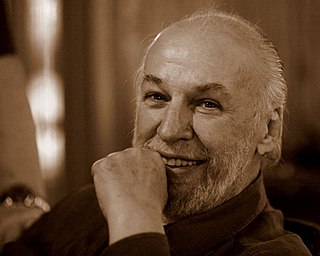A Quote by Amos Oz
What is likely to happen? Either an escalation of violence or an entire change in the whole Middle East theater. It may well happen, and I say this to my Palestinian friends, that the Palestinians have in a certain way missed their hour. They had their moment when the world's public opinion was behind them, and a considerable part of the Israeli public was willing to compromise with them.
Related Quotes
There's kind of a hidden point which isn't being brought out, and that is that it is inconceivable that the U.S. would permit democracy in the Middle East, and for a very simple reason. Just take a look at polls of Arab public opinion. They exist. You can't find them in the press, but they exist from prestigious polling agencies. Released by major institutions. And what they show is that if there was democracy in the Middle East, the entire U.S. program for domination of the Middle East would be down the tube.
I think polling is the best way of gauging public opinion - doing something that's independent, that's quantitative, that doesn't give just the loud voices about how things are going; or doesn't give so called experts the notion that they know what public opinion is. I think that's what makes public opinion polling pretty important. Qualitative assessments of public opinion; going out and talking to people and understanding the nuance to what's behind the numbers. I think it's awfully important as well.
Unsettled Middle East, in these times where the people are trying to find their way towards democracy, could be interesting for many reasons - for weapons to be sold, for new geostrategic interests to be protected, and something that we are not talking about, which is the Israeli-Palestinian conflict. The people who are lost in the whole discussion here are the Palestinians. We have demonstrations in Palestine in West Bank. Nobody is covering this. It's as if they don't exist anymore. And this is, in fact, central. And Israel is silent.
Sadly, the same leaders who call on Palestinians to abandon violence have been silent in the face of Israeli repression. By condemning violent Palestinian resistance while remaining silent in the face of Israeli crackdowns and political arrests, they are simply endorsing violence against civilians by one side instead of the other.
There are those rare people who function like human magnets, who are individually so attractive – or repellent, depending on the situation – that a considerable amount more seems to happen to them, and likewise, their presence in a certain place makes more seem to happen around them. They’re magical people. They have special power.
I realize that my opinion is my opinion, not everybody has to believe it and I never tried to shove anything down anyone's throat, but I was willing to take that to the trenches if you know what I mean. I took that opinion to the wall, often in public, often had to... I often had to fight in public with the very same people who I was trying to convince to play my records!
When I say compromise I do not mean capitulation. When I say compromise I definitely do not mean what Jesus Christ meant when he offered us to turn our other cheek to our enemies. Compromise means, try to meet the other somewhere half-way. And, this can only happen if the other is willing to go half-way in order to meet you. That is the very strict line between compromise and capitulation.
Sadly, a U.S. invasion of Iraq 'would threaten the whole stability of the Middle East' - or so Amr Moussa, secretary-general of the Arab League, told the BBC on Tuesday. Amr's talking points are so Sept. 10: It's supposed to destabilize the Middle East. The stability of the Middle East is unique in the non-democratic world and it's the lack of change in Iraq, Iran, Saudi Arabia, Syria, Egypt that's turned them into a fetid swamp of terrorist bottom-feeders.





































